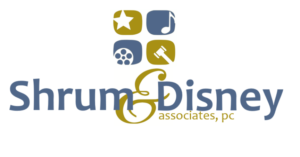Under Rule 23(e) of the Federal Rules of Civil Procedure, a settlement of a class action requires approval of the court. Fed. R. Civ. P. 23(e). The court may approve a settlement that is binding on the class only if it determines that the settlement is “fair, adequate, and reasonable, and not a product of collusion.” This week, with regard to the much ballyhooed amended settlement arrangement (the “ASA”) in The Authors Guild v. Google, Inc. the honorable Denny Chin of the U.S. District Court in Manhattan said flatly “I conclude that it is not.” See full decision.
 The ASA would have allowed Google to digitize millions of copyrighted works in an effort to create the largest digital library, a process Google began in 2004 when the company entered into agreements with certain academic libraries to digitize their holdings. Since that inaugural agreement, over 12 million books have been scanned and made available online through Google Books. The ASA would have allowed Google to “(1) continue to digitize books and inserts, (2) sell subscriptions to an electronic books database, (3) sell online access to individual books, (4) sell advertising on pages from books, and (5) make certain other prescribed uses. (ASA §§ 3.1, 4.1-4.8; see also ASA § 1.149).” Google’s rights to the copyrighted work would be on a non-exclusive basis, permitting the copyright holder to exploit the work to other companies, including competitors, while simultaneously allowing Google to display the work, for which Google would have been required to compensate the class plaintiffs 63% of the revenue from all uses of the work to the copyright holder.
The ASA would have allowed Google to digitize millions of copyrighted works in an effort to create the largest digital library, a process Google began in 2004 when the company entered into agreements with certain academic libraries to digitize their holdings. Since that inaugural agreement, over 12 million books have been scanned and made available online through Google Books. The ASA would have allowed Google to “(1) continue to digitize books and inserts, (2) sell subscriptions to an electronic books database, (3) sell online access to individual books, (4) sell advertising on pages from books, and (5) make certain other prescribed uses. (ASA §§ 3.1, 4.1-4.8; see also ASA § 1.149).” Google’s rights to the copyrighted work would be on a non-exclusive basis, permitting the copyright holder to exploit the work to other companies, including competitors, while simultaneously allowing Google to display the work, for which Google would have been required to compensate the class plaintiffs 63% of the revenue from all uses of the work to the copyright holder.
Judge Chin recognized the many benefits of an online library with virtually every work ever created are great in number. First, the sheer number of books that students, schools and researchers could access would greatly benefit the public. Those in disadvantaged economies and cultures could access knowledge otherwise not available, and persons with disabilities could learn through the implementation of Braille and audio books. Moreover, publishers and authors would benefit due to the number of books made accessible to the public, especially those works that have been forgotten in the dark and hidden corners of libraries. But as Judge Chin further pointed out,
While the digitization of books and the creation of a universal digital library would benefit many, the ASA would simply go too far.
At least 500 additional parties filed amicus briefs on the subject commenting, mostly from a negative point of view, on the amended settlement, including such notables and Microsoft and Amazon. In addition, 6800 members of the plaintiff class “opted out” of the settlement. The bulk of the briefs focused on the inadequacies in the settlement relating to class notice and class representation, and on concerns regarding copyright, antitrust, privacy and international issues. Some also argued that the settlement would go beyond the authority of the court under Rule 23 of the Civil Rules of Procedure.
This procedural issue turned out to be one of the more compelling arguments presented to the court. In as much as the settlement would have released certain claims not before court such as, for example, so-called “orphaned works,” the court felt that the ASA was “an attempt to use the class action mechanism to implement forward-looking business arrangements that go far beyond the dispute before the Court in this litigation.”
Orphan works are books that have copyright protection, but the copyright owner identified in the registration certificate cannot be located or reached. Under the ASA, Google was required to “strive” to locate the copyright holder, but if unsuccessful could digitize the book without consent. In this case, and in the case of “absent class member who failed to opt out,” pursuant to terms of the settlement agreement, the copyright owner would lose the right to object to future infringing conduct by Google. The court was “troubled” by this aspect of the agreement. The judge stated:
The questions of who should be entrusted with guardianship over orphan books, under what terms, and with what safeguards are matters more appropriately decided by Congress than through an agreement among private, self-interested parties. Indeed, the Supreme Court has held that “it is generally for Congress, not the courts, to decide how best to pursue the Copyright Clause’s objectives.
The court illustrated the concern with a quote from a Texas woman who grandfather self-published his memoirs, Dust and Snow, she says,
From Google’s point of view, Dust and Snow is an “orphaned” book. If and when Google scans it, the company is likely to be unsuccessful in trying to locate the publisher, since the book was self-published and my grandfather is now deceased. In essence, the way the settlement is written, such “orphaned” titles are automatically handed to Google free of charge to do with, as it will. From my family’s point of view, Dust and Snow is not orphaned at all. It is very clear who owns the copyright. So why is Google being granted the automatic right to take over the copyright of books like my grandfather’s?
As noted earlier, Chin stated that such matters as “orphaned works” are best left to Congress rather than private entities to delineate and enforce through such an agreement.
As the literary agents Stuart Bernstein and Susan Bergholz expressed to the court so eloquently:
By accepting this settlement, the court will be setting a highly questionable precedent, usurping the role of the legislature by creating a legal loophole for one corporation and reversing the very foundation of copyright protection. We who have devoted our lives to assisting the work of creative individuals are left with a sense of moral indignation. We have pledged, in our contracts with clients, to sell or license their rights to ethically and financially sound purchasers and licensees. And for many years we have toiled over agreements and contracts to accomplish this, aided by the protections of the law. The situation we find ourselves in now is one of dismay and powerlessness, with only the weak ability to “object” or opt out. We beseech you to give authors back their rights. Force Google to negotiate like any other.
With regard to the fact that the ASA would give Google permission to digitize any work unless the copyright owner “opted-out,” the court also found this to be unpalatable, as it places an unnecessary and unwarranted strain on the copyright owner to initiate an action to prevent copyright infringement, when in fact; the responsibility should be placed on the entity wanting to use the copyright work.
As the Copyright Act explains,
When an individual author’s ownership of a copyright, or any of the exclusive rights under a copyright, has not previously been transferred voluntarily by that individual author, no action by any governmental body or other official or organization purporting to seize, expropriate, transfer, or exercise rights of ownership with respect to the copyright, or any of the exclusive rights under the copyright, shall be given effect under this title, except as provided under title 11.” (17 U.S.C. § 201(e).)
As David Nimmer, author of Nimmer on Copyright explains, “By its terms, Section 201(e) is not limited to acts by governmental bodies and officials. It includes acts
of seizure, etc., by any ‘organization’ as well.” However, under the ASA, any copyright owner who fails to notify Google and “opt-out” will lose their right to the copyright and deem Google competent to do with their copyright as they please.
In light of the previous lawsuits brought against Google by publishers and the current settlement recently rejected, Judge Chin says,
It is incongruous with the purpose of the copyright laws to place the onus on copyright owners to come forward to protect their rights when Google copied their works without first seeking their permission.
The Court was also sympathetic to concerns raised by Microsoft and Amazon that approval of this settlement would, in effect, give Google de facto monopolies over the digital book industry as well as the online search industry. This, of course, raises a number of antitrust concerns by effectively foreclosing competition.
In Google’s pursuit to provide the first digital library encompassing the estimated “174 million unique books,” the information giant has displayed the unequivocal lengths it is willing to take in order to bring more information to more people. As one individual put it, “Google pursued its copyright project in calculated disregard of authors’ rights. Its business plan was: ‘So, sue me.'” Google’s thirst for providing perpetual information to the consumer caused the company to overlook, whether intentionally or accidently, major copyright issues.
In rejecting the settlement, Judge Chin made one very keen observation in his conclusion: ” many of the concerns raised in the objections would be ameliorated if the ASA were converted from an “opt-out” settlement to an “opt-in” settlement.” He strongly urged the parties to consider such an option.
http://www.nysd.uscourts.gov/cases/show.php?db=special&id=115





